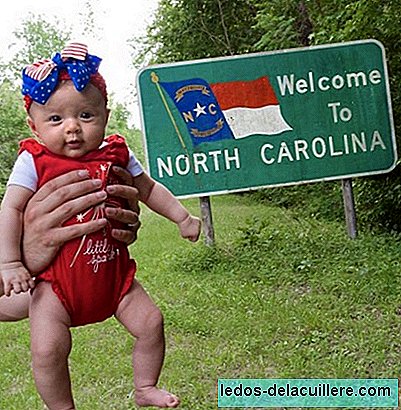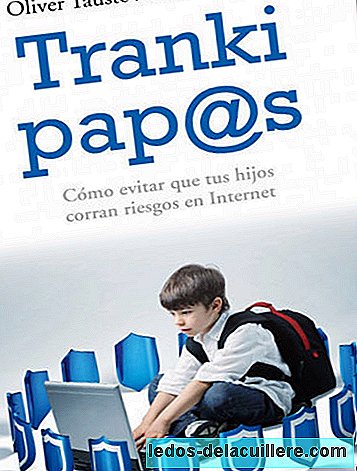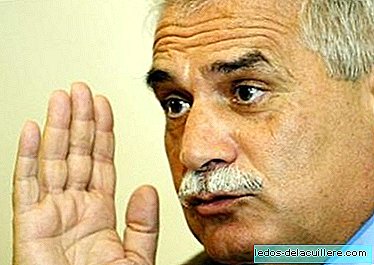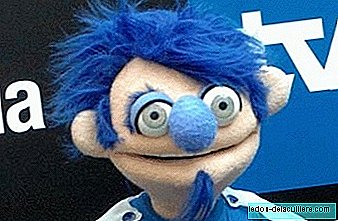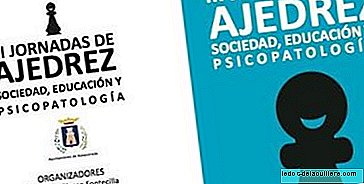
I have attended the III chess, society, education and psychopathology conference in Navacerrada to check the state of the art of this sport in Spain especially in the social and educational applications. If last year many of the initiatives were consolidated and others started strongly, this year it can be said that the use of chess positions Spain as world leader although, as he stressed Leontxo García, it is still necessary to get the approval of the scientific community with the publication of specialized articles that support the extraordinary achievements. The conference was aimed at doctors, psychiatrists, psychologists, teachers and in general all chess fans who would like to know more applications and uses of this ancient sport.
For example, this year I was able to see Hilario Blasco which, in addition to organizing the conference, leads the initiative of Checkmate ADHD and that applies to minors in residential care. Hilario is awaiting approval by the scientific community to publish the results of a study with 40 children and we hope he can get it soon. Hilario's experience is that of work with children with stories of abuse and neglect, link disorders Y cultural differences: gypsy ethnicity, foreigners, etc. He also explained the work with children with ADHD who are creative and disorderly, who do not handle emotions and who can concentrate by playing chess. So he said that there are many treatments they do with them such as encouraging them to close their eyes and try not to think, teach them to focus their attention, keep the attention on the game and involve educators and the family looking for parents to spend more time playing with children.
Hilario explained that it is difficult, in the case of ADHD, to separate what is due to chess Y what is due to other social activities that are developed by the use of chess. He also made a comparison of the diagnosis in the United States of ADHD by states and clearly a correlation could be observed between bad weather, which prevents children from going outside to play, and the good weather that allows children to develop the skills of Play, have fun, learn in the street. The conclusion is that in the United States it is overdiagnosing, over-medicating and that in Spain we may be able to approach this if we do not get to the task with our children. And it is that chess is cheap, it is harmless, it helps to solve problems, it improves self-esteem and self-control, it facilitates mathematical logical reasoning. And Hilario presented that children feel and perceive after therapy and among their opinions they explained that chess offers them peace of mind, that there are no fights between them although the challenges are healthy, that they can be very competitive and without fights like in football, that learn to look for options and strategies of action, that anticipate what the opposite will do and that opens the door to try other games.
During the day the media took the opportunity to interview Leontxo García who anticipated part of the content of his subsequent presentation that I present later:

Also spoke Elena Chamber, Inspector of Education in Cantabria who explained how the initiative to develop chess inclusion plans in the schools had gone and of which they have published their successes on the Cantabria Chess page. Elena's experience is fantastic and I hope to be able to tell more details about her soon in Peques y Más. The objective of the initiative is to work on executive functions, that is, by competencies and to promote didactic innovation. The scope ranges from children to high school and classes have been held one hour a week with a total of 25-28 sessions in the 2013-2014 academic year. The integration of chess has been applied in class hours, at recesses, in extracurricular time, etc. They have finally collaborated 31 educational centers, 1,717 students, 84 teachers (chosen as volunteers) and 102 unique students.
Elena has presented a qualitative evaluation of the project in terms of learning, the cognitive and emotional-social processes that the initiative has produced. Among what is repeated most is the improvement of impulse control and emotions. Thus, in November it was all speed and passion and in June it was no longer wanting to win but managing time and working reflexively. In addition, students recognize that they learn to abide by the rules, rules and respect a ritual, they also show a desire for improvement and achievement, improve social relationships and coexistence by eliminating labels, for example Elena explained how a student classified as bad was able to defeat the student classified as good as chess. Students also learned to take risks, to manage success and failure because you can win and lose and nothing happens. Other results of the project indicate that boys are more competitive than girls.
There were 102 unique children in the project, including ADHD, high capacity, autism, etc. In all cases they participated during the 50-minute classes, had normal behavior, learned to control their impulses and incorporated chess as a new activity for their leisure time. And more consequences because the interest of the AMPAS in the initiative was increased, also the number of federated children, the requests of chess boards in the letters of the Magi were increased. Thus in Vega de Pas, the Pasiego Valley, Elena explained that the children of 4th, 5th and 6th grade of primary school asked for chess boards and that they played with their families, parents and grandparents, at home although this last action was carried out by many other children in Cantabria. Other children indicated, speaking of mathematics, that they are like chess and you have to think first. More successful experiences as a shy 2nd ESO boy who was encouraged to prepare the chess talk for other classmates.
Finally Elena explained that the project cost / benefit ratio is very good, with an initial investment in teacher training and in material although the key is in the teachers who have promoted the initiative with the students. He also thanked the Cantabrian Chess Federation who collaborated on the project with teacher training. From the evaluation of the teachers to the project, Elena talked about the lowest grade being a 7 and the highest a 9.5 with an average higher than 8.5.
A conference was also held at tournament with games on the boards prepared for this purpose and with the participation of many children who received their delighted prizes:

Another application of chess at school was presented by Doctor Javier Andrés Blumenfeld Olivares, from the pediatric section of the El Escorial Hospital in Madrid. Javier explained the initiative in the Antonio Robles College, public, with students diagnosed with ADHD and who have a alteration of executive function understanding why they have attention failures, difficulty controlling impulses, short-term memory misuse. Javier said that from the AMPA they made the decision to promote the use of chess in the classroom and that it was worth nothing or complain about the cuts or the bad action of politicians. That is why he valued the organization of the project, the resolution of problems among all and the success of the initiative. Javier did not stop congratulating all the speakers for the great work done with chess in the social and educational projects that were presented during the day.
In addition to these papers that put the focus on the education of children and the therapy of disorders, there were some magnificent presentations of Juan Antonio Montero, psychologist, who applies the use of chess as addiction therapy in Extremadura with the Magic Chess Club. Juan Antonio explained that chess is a good gym for the brain and that they work with patients with very simple tools although they generate high impact, for example, they work with the board, with paper, with positions to improve those cognitive functions that deteriorate in the brain for addictions and that drive from less to more for the patient to progress. Also spoke Urban Vázquez, Medical Director of the Work Center of La Garrovilla in Mérida who explained that addictions limit abilities such as motivation, memory, reward and inhibition control. They work with patients between 41 and 55 years of age performing chess exercises aimed at working on the deficiencies caused by these addictions in the brain. Although for doctors the challenge is to obtain abstinence, any additional improvement is essential to ensure that the patient can live a normal life. Urban explained that program users say it improves memory, decision making, public speaking, defining strategies, that every movement they make in their life has its consequences, that they recover reading and attention. In addition, students make an extraordinary assessment of chess monitors led by Juan Antonio Montero of the Magic Chess Club.
And finally Leontxo García, journalist, writer, popularizer, chess player and scholar, said that chess in the classroom seems to be staying and that it is very likely that chess is included in academic programming, although last year it seems that it was going to be incorporated into the Wert Law, however, it finally seems that it will be promoted outside it and with the consensus of the still majority parties: PP, PSOE, IU, CiU, PNV, CC. The challenge is to make this proposal, presented by the PSOE, be approve unanimously And it should be that way because all parties are promoting initiatives in the autonomous communities where they govern. Leontxo also presented the 10 reasons to support chess and that include: the development of intelligence, its use as a gym for the mind, social utilities, which can be practiced on the Internet, which is universal because only athletics and football have more federated in the world, than the basic cost It is very cheap, that the image of chess is linked to intelligence, that it has a history of more than 1,500 perfectly documented years, that there are fascinating characters in history and that it is connected with science, art and mathematics.

We congratulate the Navacerrada City Council for the initiative, which is already in the 3rd edition and we wish you many encouragement to continue having more calls. The speakers were magnificent and showed that with passion, work and effort great achievements can be achieved including chess within social programs. Much emphasis was made, especially Leontxo, that chess should be considered at these ages as a tool for learning and never as a model to create champions. Leontxo continues to use the Hindu proverb that "chess is a sea where a baby mosquito and an elephant bathe" that maintains its validity to explain that there is room for everyone in chess. Surely as these editions progress, you can see the enormous progression of this type of initiatives in Spain making us world leaders in the social and educational application of chess.
Finally, from the Navacerrada City Council, they have published a five-minute video about the III Chess Days, which Curro Vázquez has made.


